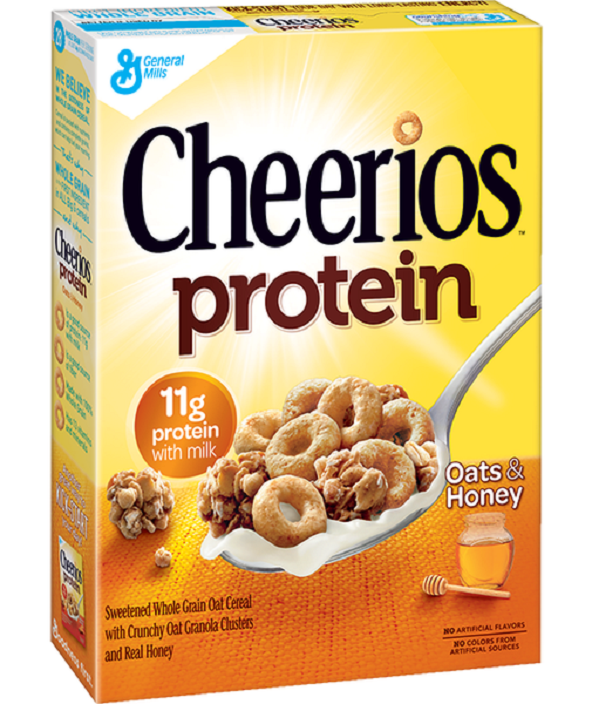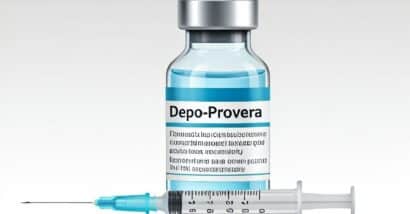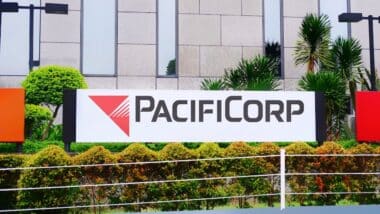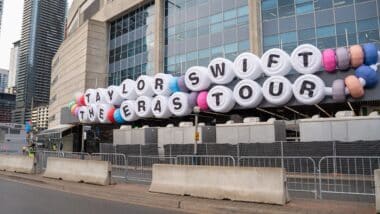 General Mills has been hit with a proposed Cheerios class action lawsuit over allegations the company misled consumers into purchasing a higher priced “protein” cereal when it actually has only nominally more protein and a significant amount of sugar.
General Mills has been hit with a proposed Cheerios class action lawsuit over allegations the company misled consumers into purchasing a higher priced “protein” cereal when it actually has only nominally more protein and a significant amount of sugar.
Cereal consumers Nancy Coe and Tori Castro of California, as well as Pamela Mizzi from New York, filed the Cheerios Protein class action lawsuit on Monday claiming that they each individually purchased the falsely advertised cereal believing it was a healthier alternative to the original Cheerios.
According to the Cheerios false advertising class action lawsuit, U.S. consumers are actively seeking out food products that are high in protein which is why General Mills decided to create a cereal to entice customers who would pay a premium for the hottest food trend.
The plaintiffs claim that they trusted the Cheerios brand, so when they saw advertisements on television and the Internet about the new “protein” cereal, they purchased the product believing that it would have substantially more protein than the original Cheerios.
However, the Cheerios Protein false advertising class action lawsuit contends that the new cereal only has 7/10th of a gram more protein than a comparable serving size of regular Cheerios. The plaintiffs point to a deceptive marketing tactic of changing the serving size on the protein cereal so it appears to have more grams.
According to the false advertising class action lawsuit, Cheerios Protein has a 55 gram serving size whereas regular Cheerios has a 27 gram serving size. When the plaintiffs compared a 200 calorie serving worth of original Cheerios to Protein Cheerios they found it only contained a smidgen more protein.
The real difference between the two cereals is the increased amount of sugar, the plaintiffs allege. The Cheerios class action lawsuit claims that again the company tried to lure customers into purchasing a “healthier” cereal that had 17 times the amount of sugar per serving compared to traditional Cheerios.
“General Mills, in its naming and marketing of Cheerios Protein, misleadingly and deceptively omits any clear and conspicuous indication that the product is laden with added sugar,” the plaintiffs allege in the Cheerios class action lawsuit.
And for this, the three lead plaintiffs claim they had to pay a premium price. The Cheerios Protein class action lawsuit states that the new cereal costs 10 cents more per serving when compared to regular Cheerios. They each allege that they would never have purchased Cheerios Protein had it not been for the false and misleading labeling and advertising.
The plaintiffs are seeking $5 million in damages for the proposed Cheerios class action lawsuit. If approved, the lawsuit will be open to all Class Members who reside in California or New York who have purchased Cheerios Protein for personal use and not for resale since March 1, 2014.
The plaintiffs are represented by Laurence D. King and Linda M. Fong of Kaplan Fox & Kilsheimer LLP, Maia Kats and William Thanhauser of Center for Science in the Public Interest, and Michael R. Reese of Reese LLP.
The Cheerios Protein False Advertising Class Action Lawsuit is Nancy Coe, et al. v. General Mills Inc., Case No. 3:15-cv-05112, in the U.S. District Court for the Northern District of California.
UPDATE: On Jan. 29, 2016, General Mills filed a motion to dismiss a class action lawsuit that alleged false marketing of the Cheerios Protein cereal by arguing that the plaintiffs are attempting to invent label requirements.
UPDATE 2: On April 20, 2016, General Mills urged a California federal judge to dismiss a class action lawsuit alleging the labels on its Cheerios Protein cereals do not adequately inform consumers about the amount of protein and sugar in the product.
UPDATE 3: On Aug. 10, 2016, General Mills will continue to face a false advertising class action lawsuit over Cheerios Protein, following a decision by a federal judge to dismiss some of the plaintiffs’ claims and to let the rest proceed.
UPDATE 4: On Oct. 21, 2016, cereal consumers alleging General Mills falsely markets its Cheerios Protein cereal as having significantly more protein than regular Cheerios fight a motion to dismiss a class action lawsuit.
ATTORNEY ADVERTISING
Top Class Actions is a Proud Member of the American Bar Association
LEGAL INFORMATION IS NOT LEGAL ADVICE
Top Class Actions Legal Statement
©2008 – 2025 Top Class Actions® LLC
Various Trademarks held by their respective owners
This website is not intended for viewing or usage by European Union citizens.















8 thoughts onGeneral Mills Faces Cheerios Protein False Ad Class Action Lawsuit
Add Me Please
UPDATE 4: On Oct. 21, 2016, cereal consumers alleging General Mills falsely markets its Cheerios Protein cereal as having significantly more protein than regular Cheerios fight a motion to dismiss a class action lawsuit.
UPDATE 3: On Aug. 10, 2016, General Mills will continue to face a false advertising class action lawsuit over Cheerios Protein, following a decision by a federal judge to dismiss some of the plaintiffs’ claims and to let the rest proceed.
UPDATE 2: On April 20, 2016, General Mills urged a California federal judge to dismiss a class action lawsuit alleging the labels on its Cheerios Protein cereals do not adequately inform consumers about the amount of protein and sugar in the product.
UPDATE 2: On April 20, 2016, General Mills urged a California federal judge to dismiss a class action lawsuit alleging the labels on its Cheerios Protein cereals do not adequately inform consumers about the amount of protein and sugar in the product.
UPDATE: On Jan. 29, 2016, General Mills filed a motion to dismiss a class action lawsuit that alleged false marketing of the Cheerios Protein cereal by arguing that the plaintiffs are attempting to invent label requirements.
We but these all the time. Why is it only for CA and NY?
I always use Cherries and buy a box a week